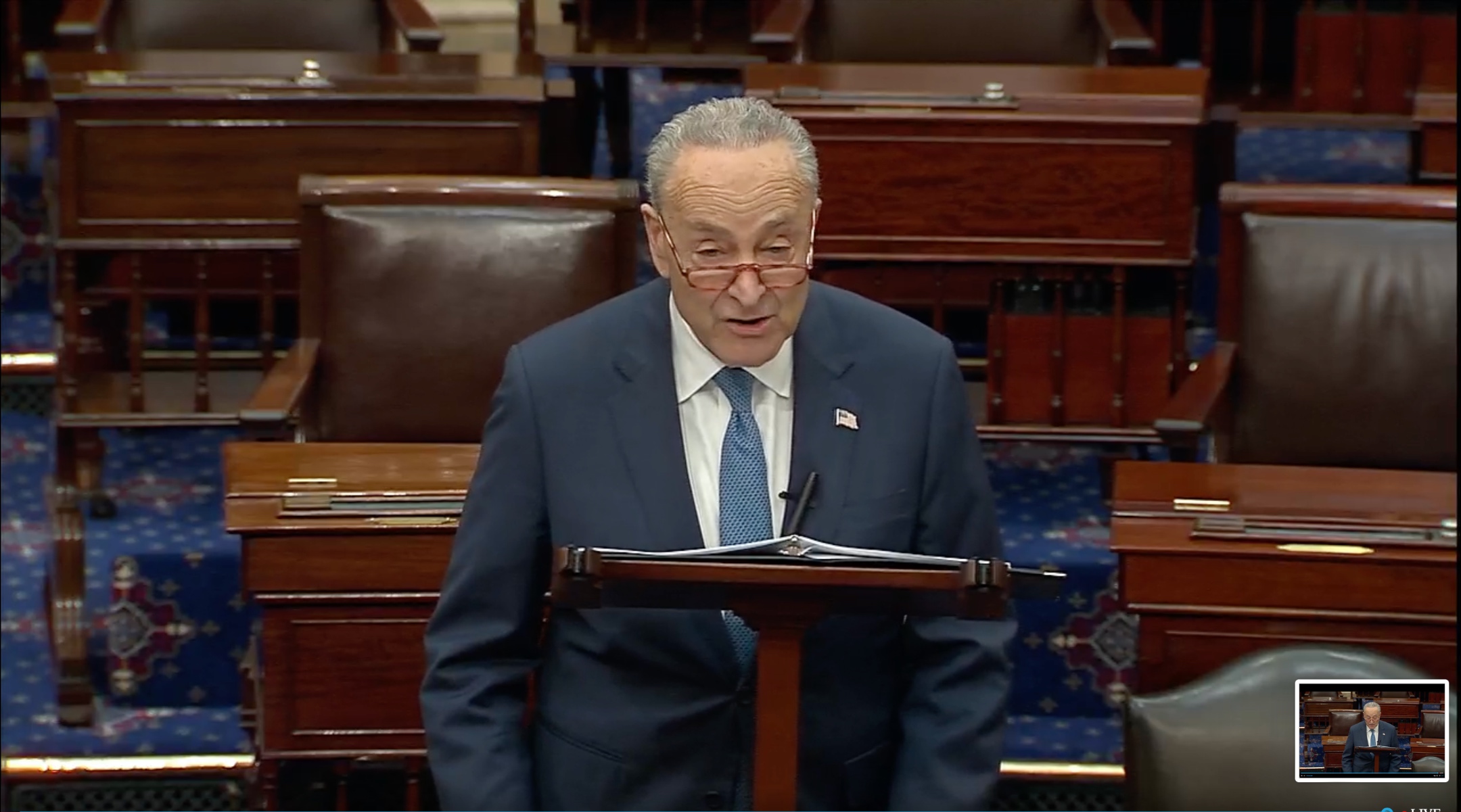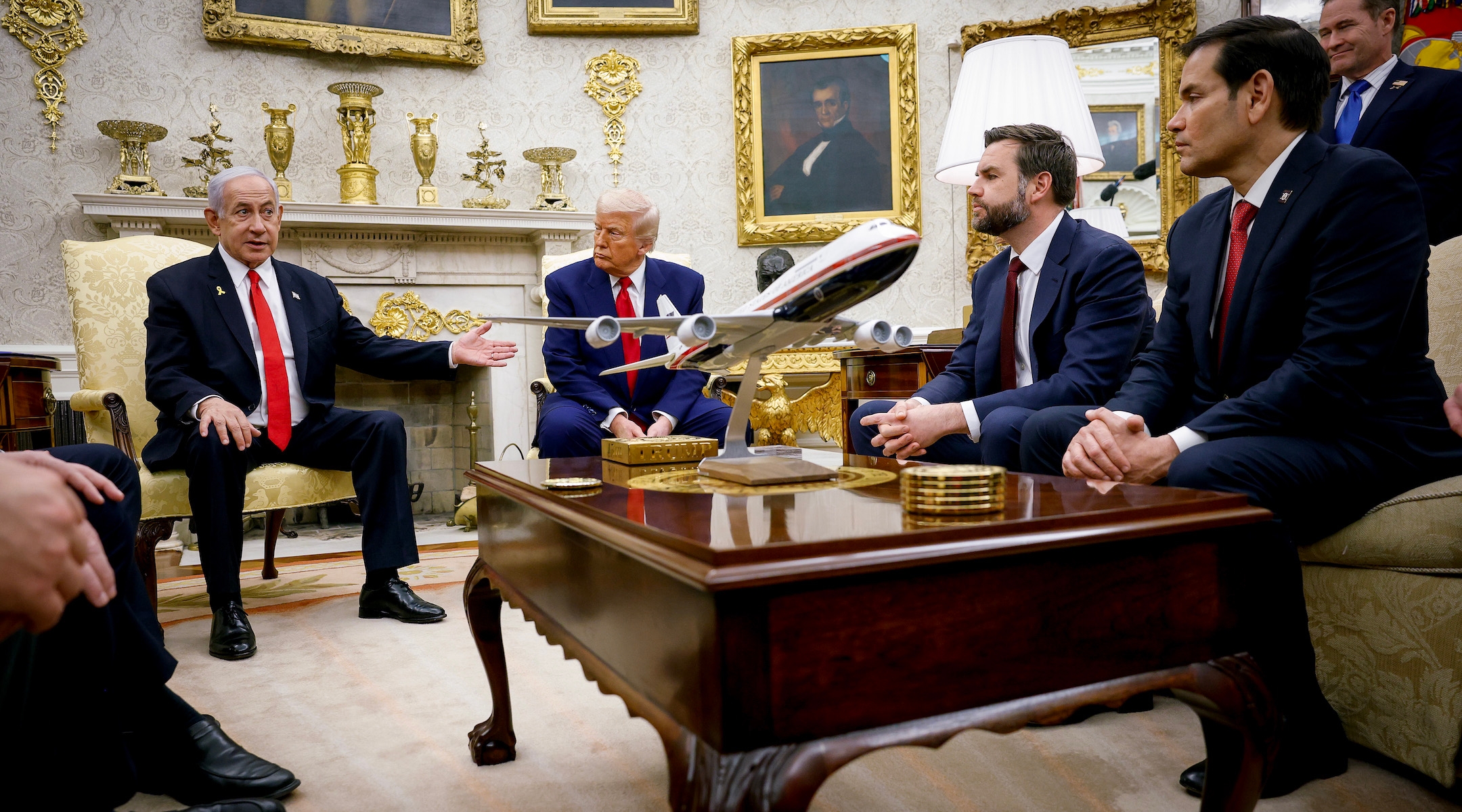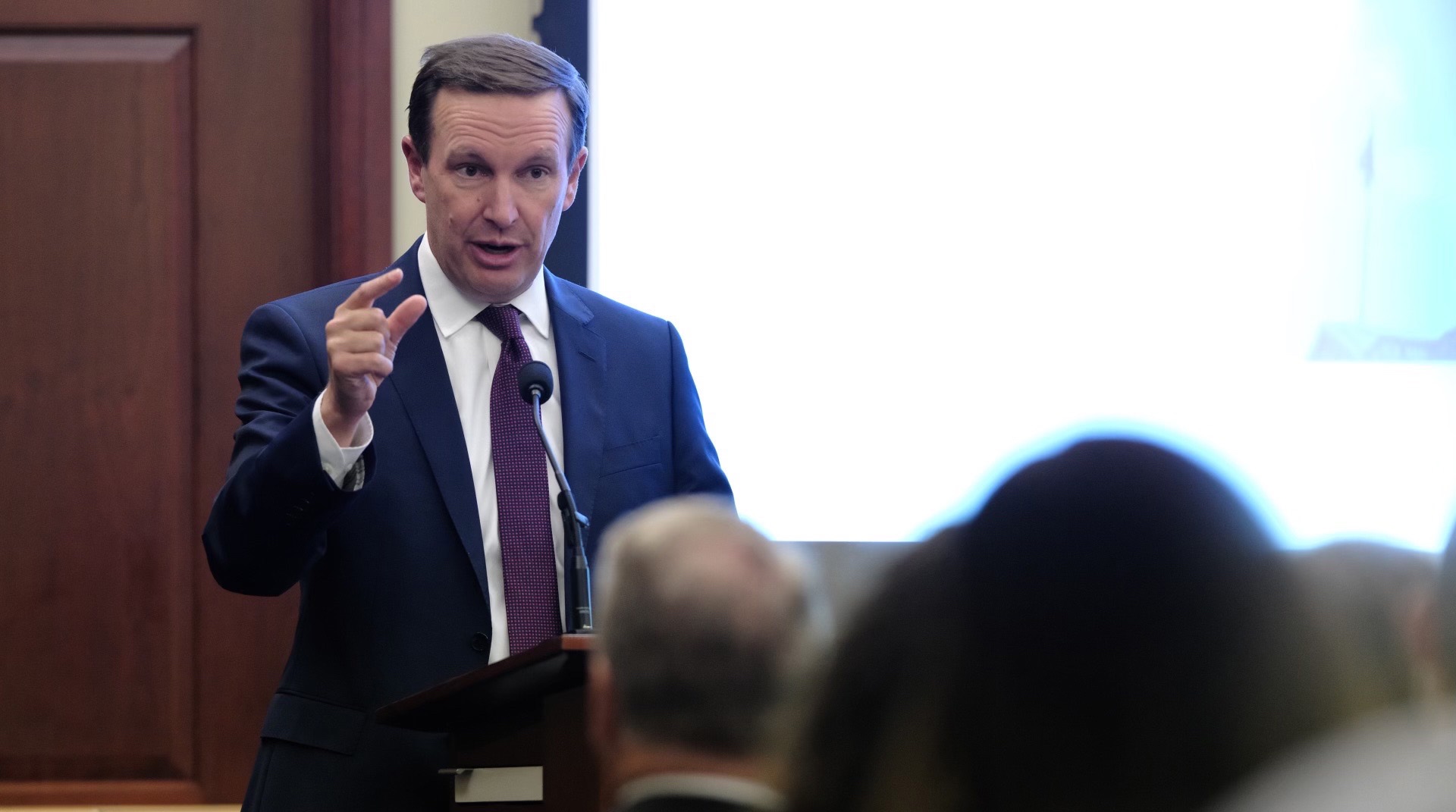Before Israel struck Iran’s nuclear program, tensions were showing in U.S. lawmakers’ attitudes toward Israel.
Democrats were increasingly critical of Israel’s war conduct in Gaza, with only a single Democratic senator reliably taking Israel’s side in public discourse.
An anti-interventionist bent within the Republican Party, meanwhile, was putting pressure on the party’s long-reliable support for Israel.
But in the hours after the strike, many of those tensions receded — though did not vanish. Recent critics of Israel expressed support for the strike and for aiding in Israel’s defense against retaliation. And few advocates of a hands-off foreign policy were openly making that case. Still, some on the extremes in each party continued to press their views.
Here’s what you need to know about how U.S. lawmakers are responding to the strike and the resulting turmoil in the Middle East.
Much of the Republican caucus in both Congressional chambers exulted in the Israeli attacks and their ostensible success. Speaker of the House Mike Johnson defended the attack, posting a tweet on X declaring: “Israel IS right — and has a right — to defend itself!” Senate Majority Leader John Thune warned Iran that it “should heavily consider the consequences before considering any action against Americans in the region.” The Republican Jewish Coalition enthusiastically reposted GOP members praising Israel, and suggested that Trump was in on the planning.
Marjorie Taylor Greene’s Congressional X feed told the tale of a growing number of Republicans who favor staying out of foreign wars, but also take pride in their devoted support of the president. “Thank you President Trump!” Greene tweeted shortly before the strikes, quoting a Trump social media post expressing commitment to a diplomatic resolution. She added that “the American people aren’t interested in foreign wars.”
Her next tweet, posted Friday morning, was more muted. “I’m praying for peace. Peace. That’s my official position,” she said. Kentucky Sen. Rand Paul, who has increasingly broken with Trump, stuck to his isolationist bona fides, tweeted: “No war with Iran. The Neocons’ latest plan must be opposed.”
The top two Democratic congressional leaders stressed the need to stop Iran from developing nuclear weapons, while also emphasizing the need for a diplomatic path forward. Senate Minority Leader Chuck Schumer and House Minority Leader Hakeem Jeffries, both of New York, stressed the need for a diplomatic solution, with Schumer also stating that “the United States’ commitment to Israel’s security and defense must be ironclad as they prepare for Iran’s response.”

New York Sen. Chuck Schumer, a Jewish Democrat who was the majority leader, delivers a speech on antisemitism in the U.S. Capitol, Nov. 29, 2023. (Senate website/screenshot)
But several other leading Democratic senators criticized Israel’s decision to strike. Sen. Jeanne Shaheen, the ranking member on the Senate Foreign Relations Committee, said in a statement, “Israel’s strikes against Iran represent an escalation that is deeply concerning and will inevitably invite counterattacks. This risks not only U.S. negotiations with Iran, but the safety of American service members, diplomats, their families and ex-pats around the region.” Rhode Island Sen. Jack Reed, the top Democrat on the Senate Armed Services Committee issued a statement that accused Israel of endangering U.S. forces in the region, calling the attacks “a reckless escalation that risks igniting regional violence.”
Virginia Sen. Tim Kaine, who serves on both committees, issued a statement criticizing Israel for striking now, “knowing high level diplomatic discussions between the United States and Iran are scheduled for this weekend.” And Connecticut Sen. Chris Murphy, a top member of the caucus, sounded a similar theme arguing on X that Netanyahu was trying to “destroy” diplomacy. “How do we know?” Murphy tweeted. “They reportedly targeted and killed Iran’s chief negotiator with Trump.”
Pro-Israel Democrats and the Democratic Majority for Israel posted close to 20 statements in Israel’s support. “Our commitment to Israel must be absolute and I fully support this attack,” Sen. John Fetterman of Pennsylvania tweeted, adding, “Keep wiping out Iranian leadership and the nuclear personnel. We must provide whatever is necessary—military, intelligence, weaponry—to fully back Israel in striking Iran.” (Later, he joked on social media, as he has before, about Israel’s successful beeper attack on Hezbollah last year.)
Rep. Debbie Wasserman Schulz of Florida, too, made the case against Iran. “I stand firmly behind Israel’s right to defend itself. Iran has long funded terror groups who killed Americans and has moved to develop nuclear weapons to aim at Israel,” she tweeted. ”If Israel’s strikes set back Iran’s nuclear program, we’ll all be safer.”
And Rep. Richie Torres of New York, on his personal X account, rebuffed those who immediately called for deescalation. “The charge of ‘escalation’ is reserved exclusively for Israel, not for a threshold nuclear power openly calling for its destruction,” he wrote. “The double standard is unrelenting.”
Even as many Democratic lawmakers criticized Israel, the Jewish Democratic Council of America criticized Secretary of State Marco Rubio for insufficient support of Israel’s actions. The first official U.S. statement in the wake of the attack, by Rubio, did not praise Israel’s success and emphatically sought distance, calling it “unilateral” and saying that it did not coordinate with Israel. (By contrast, the Biden administration praised Israel’s attacks on Iran last year and emphasized coordination.)

Israeli Prime Minister Benjamin Netanyahu, accompanied by U.S. President Donald Trump, U.S. Vice President J.D. Vance, Secretary of State Marco Rubio, and U.S. National Security Adviser Michael Waltz, speaks during a meeting in the Oval Office of the White House on April 7, 2025 in Washington, DC. (Kevin Dietsch/Getty Images)
Halie Soifer, the CEO of the Jewish Democratic Council of America, another pro-Israel Democratic aligned group, posted criticism of Rubio for distancing himself from Israel in his initial statement – and got slammed by Republicans accusing her of hypocrisy and progressives who wondered why she was embracing Israel’s actions.
In an interview, she would not comment directly on criticisms of Israel from Democratic lawmakers, but said she agreed with them that diplomacy was the best path forward. She refused to accept that Trump’s post-facto enthusiasm for Israel’s strikes was anything but cynical, noting a number of actions he has taken in recent weeks that appear to have cut out Israel, including a visit to the region that included Qatar, which backs Hamas, and not Israel, and a deal with the Houthi militias in Yemen that spared U.S. targets from their attack – but left out Israel.
“If there was any doubt about this President’s support of Israel, it should have been clear to all last night when Secretary Rubio, put out a callous statement that essentially indicated that an end of America’s historic support of Israel,” she said.
JTA has documented Jewish history in real-time for over a century. Keep our journalism strong by joining us in supporting independent, award-winning reporting.






